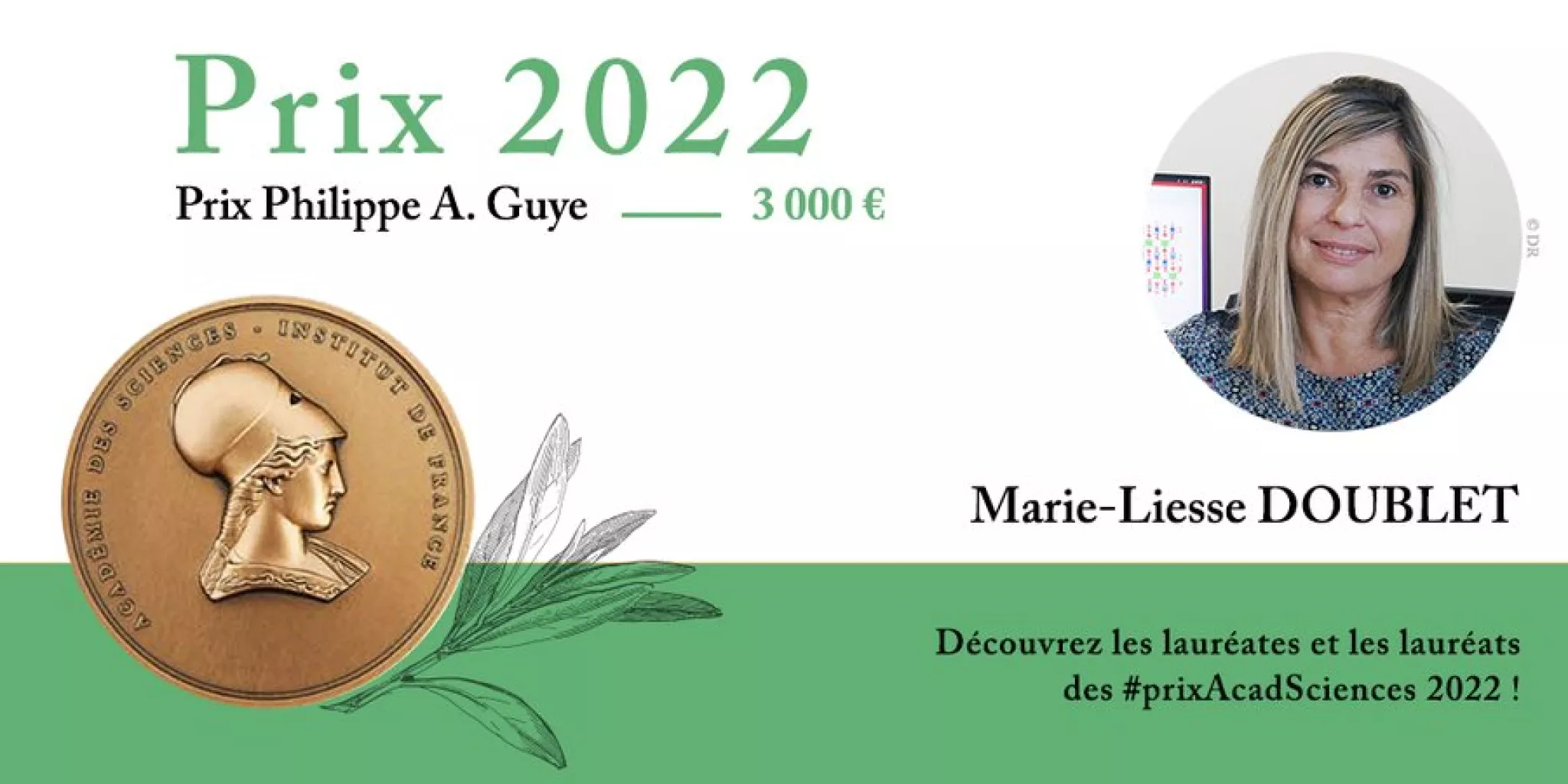Marie-Liesse Doublet: laureate of the Philippe A. GUYE 2022 Prize of the French Academy of Sciences
Each year, the Academy of Sciences awards nearly 80 prizes covering all scientific fields, both fundamental and applied. The selection of the laureates is carried out by juries operating within the framework of rules excluding the possibility of conflicts of interest.
Marie-Liesse Doublet is currently working at the Institut Charles Gerhardt Montpellier as a research director and head of the Theoretical Physical Chemistry and Modeling Department.

Hi Marie-Liesse, could you tell us more about obtaining this prize: how did the process proceed and what does it mean to you?
Last June, I received a letter from the Permanent Secretaries of the Academy of Sciences announcing that they wished to "underline their interest in my research work by awarding me the Philippe A. Guye Prize", with no more detail.
I have since learned that Philippe Auguste Guye was a Swiss chemist born in 1862 who distinguished himself in various fields of chemistry-physics, that the Academy prize that bears his name is a thematic prize in chemistry-physics that is awarded every 3 years. Looking at the list of its awardees, I obviously felt a great pride and an immense recognition for those who have contributed, each in their own way, to make me part of it today.
On which projects are you currently working?
I am involved in several projects related to new issues in the energy field, such as electrochemical interfaces or new liquid or solid electrolytes for post-Li technologies. But more than the systems or problems I study, I am interested in the theoretical strategies and computational tools that need to be put in place to help experimenters better understand their systems. In any case, this is the approach I have always taken in my research since the beginning of my career.
Last question, what are your future projects?
To continue to develop my conceptual approaches to understanding physico-chemical reactivity, in the broadest sense, and therefore not necessarily in relation to energy issues. For theorists, electrons, nuclei and couplings between nuclei and electrons are treated in the same way, whatever the targeted application. This is the advantage of our discipline. One thing is sure, I will remain in contact with experimentalists because the approaches I develop require first a good understanding of their systems before choosing and building the most suitable theoretical model to understand their properties. I have always fought against the idea that the best theoretical strategies are those that consist in systematically choosing the most expensive calculations or the most sophisticated methods to understand a problem. This is the big difference for me between "modeling" and "simulation".